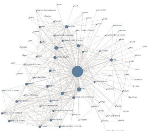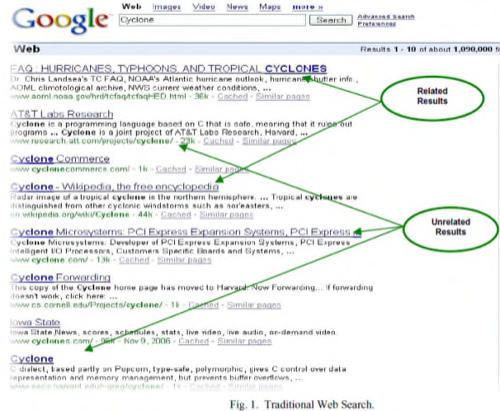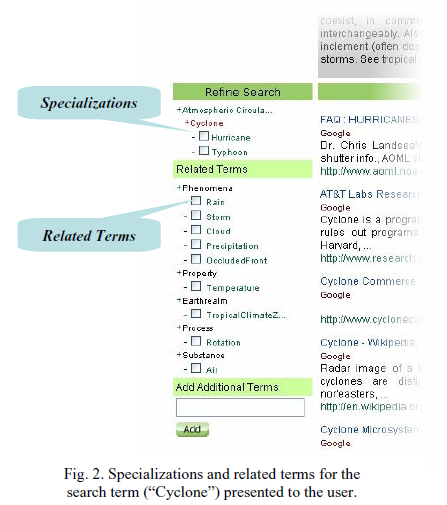Noesis is a new semantic web search engine that helps scientists studying the environment access and retrieve the research data they need. Developed at the University of Alabama in Huntsville, the new engine has the potential to enable scientists and researchers everywhere to perform more productive and focused searches thanks to the semantic technology Noesis uses.

About Noesis
The Noesis search engine (PDF) is different than regular search engines because it employs the use of semantics to help its users better shape their search queries. The results of this lead to better, more accurate, and more complete sets of search results. Those results can then be refined even further by Noesis’ end users if necessary.
The goal of the Noesis project is to provide scientists working in the field of Atmospheric Science a way to better search through the “hidden web” of scientific catalogs that traditional search engines cannot reach. Because these catalogs are built using a standard vocabulary, the most efficient searches on the catalogs involve using specific terminology.
To create Noesis, researchers simply annotated those specific vocabulary terms with ontologies – the machine-readable definitions for the words that help computers understand the concept of the term and its relationship to other terms. Of course, annotations alone do not make a semantic web search engine. The ontologies must be coupled with a tool that’s capable of searching through them. To that end, Noesis employs something they call the Ontology Interface Service (OIS), a SOAP-based web service interface to an inference engine. When a user performs a search, the OIS is also immediately searched for associated concepts. The Specializations and Generalizations discovered are returned in a tree structure which the user can navigate further. Synonyms and related terms are also shown, and, using checkboxes, they can be appended to the original query to refine it further.


Although the project was designed for use in one select area of science, its framework could easily be replicated in other scientific fields of study.
The Semantic Web: Better in Niches?
The main problem with the semantic web today is that the assignment of those above-mentioned ontologies – the pieces of code that allow machines to grasp meanings that humans innately understand – is that there’s no solid way to automate their assignment. At the present time, no automatic or semi-automatic processes to do so have been achieved…at least, not to the point that a true vision of a new, intelligent web can be realized.
Most of the time, annotating web resources must be done using manually inserted bits of code placed into various web pages. Obviously, that’s a challenge when you consider the size of the internet – it would be impossible to manually annotate this ever-growing resource. Unfortunately, without automated methodologies, a true semantic web will remain an unrealized dream.
However, in smaller communities, the semantic web can easily become a reality. Scientific data catalogs only represent small portions of the web as whole. Because of their limited size, manually annotating the resources they contain is a manageable feat. This is the case with Noesis. It shows there is promise for the semantic web after all – if only in small niches.
Image credit: rule100





















